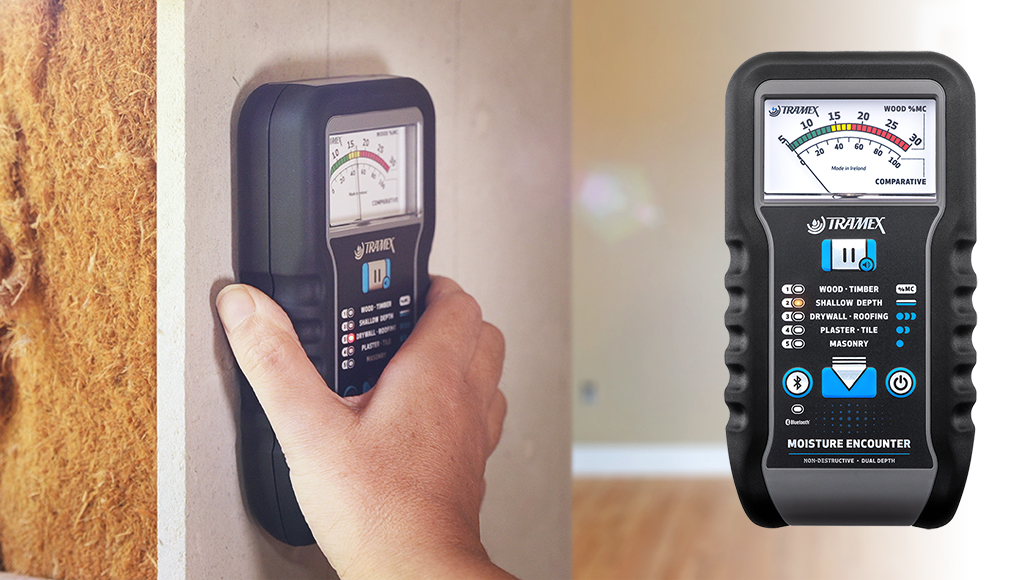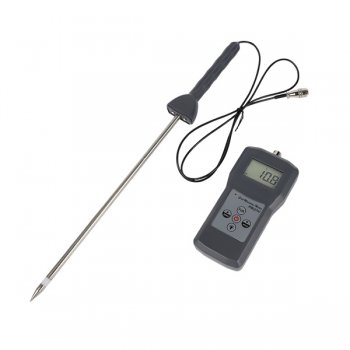Exactly How a Moisture Meter Can Improve Your Building And Construction Jobs and Prevent Damages
Exactly How a Moisture Meter Can Improve Your Building And Construction Jobs and Prevent Damages
Blog Article
The Ultimate Overview to Wetness Meters: A Comprehensive Overview and How They Can Conserve You Cash
Moisture meters serve as indispensable devices in identifying and keeping track of moisture web content in products, helping in preventing costly problems and ensuring the top quality of items. Comprehending the subtleties of various kinds of wetness meters, their applications, and the possible cost-saving advantages they use can be a game-changer for professionals and organizations alike.
Sorts Of Dampness Meters
One usual type is the pin-type wetness meter, which determines the electrical resistance between two pins inserted into a product. Pinless moisture meters, on the various other hand, usage electromagnetic sensor plates to check a larger location without creating damages to the product's surface area.

Infrared moisture meters gauge the thermal buildings of a material to determine its wetness material non-invasively, making them valuable for applications where pin or pinless meters might not be ideal. Understanding the different types of wetness meters readily available can aid industries select the most ideal device for their particular moisture measurement requirements.

Advantages of Using Wetness Meters
Moisture meters offer invaluable advantages in accurately evaluating and keeping an eye on moisture levels in varied products and settings (Moisture Meter). One of the primary benefits of utilizing wetness meters is the prevention of potential damage brought on by excess wetness. By discovering and addressing high moisture degrees early on, dampness meters help to stop mold growth, rot, and structural damage in buildings, conserving both money and time on repairs. Additionally, wetness meters help in guaranteeing the high quality of materials during building or production processes. By properly measuring dampness content, these tools assist keep the integrity of timber, drywall, concrete, and other materials, decreasing the risk of failures or issues.
Moreover, making use of moisture meters can lead to increased energy effectiveness. In farming setups, moisture meters play a crucial duty in maximizing crop returns by making it possible for farmers to keep track of soil wetness levels and make informed irrigation decisions.
Just How to Choose the Right Wetness Meter
When choosing a moisture meter, it's necessary to guarantee that the meter is suitable for the certain material you will be testing. Different products have differing electrical residential properties that can impact dampness readings, so selecting a meter made for your material is crucial for exact results. By carefully reviewing these factors, you can select a wetness meter that satisfies your requirements and gives accurate moisture dimensions for your jobs.
Proper Techniques for Wetness Meter Usage

Expense Cost Savings Through Wetness Meter Applications
How can the strategic utilization of dampness meters lead to considerable cost financial savings across numerous sectors? In the farming market, wetness meters help in identifying the optimum time for collecting plants, avoiding excess or over-drying moisture that can influence the final product's top quality.
In a similar way, in building, moisture meters assist protect against pricey damages by detecting moisture degrees in building products, such as wood or concrete, which discover this can cause architectural concerns otherwise addressed without delay. By identifying problem locations early on, service providers can take restorative measures to avoid substantial repairs or substitutes, eventually saving money and time.
Moreover, in the food processing industry, wetness meters are necessary for keeping track of item top quality and ensuring conformity with safety and security policies. By accurately determining dampness material in food items, producers can avoid putridity, preserve quality, and decrease waste, causing significant price savings. Generally, the strategic application of wetness meters is a useful financial investment that can bring about substantial cost reductions and enhanced efficiency throughout different sectors.
Verdict
In conclusion, dampness meters are beneficial tools for identifying and gauging moisture levels in different products. By utilizing the right dampness meter and adhering to correct strategies, individuals can successfully avoid costly problems created by excess click for source wetness. Buying a high quality moisture meter can result in significant expense financial savings over time by identifying possible problems beforehand and making it possible for prompt remediation. Eventually, wetness meters are important tools for keeping the honesty and long life of materials and frameworks.
Wetness meters serve as essential tools in detecting and checking moisture content in materials, assisting in protecting against costly problems and making sure the quality of items. find Infrared wetness meters gauge the thermal homes of a product to identify its wetness material non-invasively, making them useful for applications where pin or pinless meters may not be ideal.Moisture meters provide very useful advantages in accurately monitoring and assessing moisture levels in diverse materials and atmospheres. In farming setups, wetness meters play a critical duty in optimizing crop yields by allowing farmers to keep track of dirt wetness degrees and make educated irrigation decisions.In conclusion, wetness meters are useful devices for detecting and gauging dampness levels in numerous materials.
Report this page